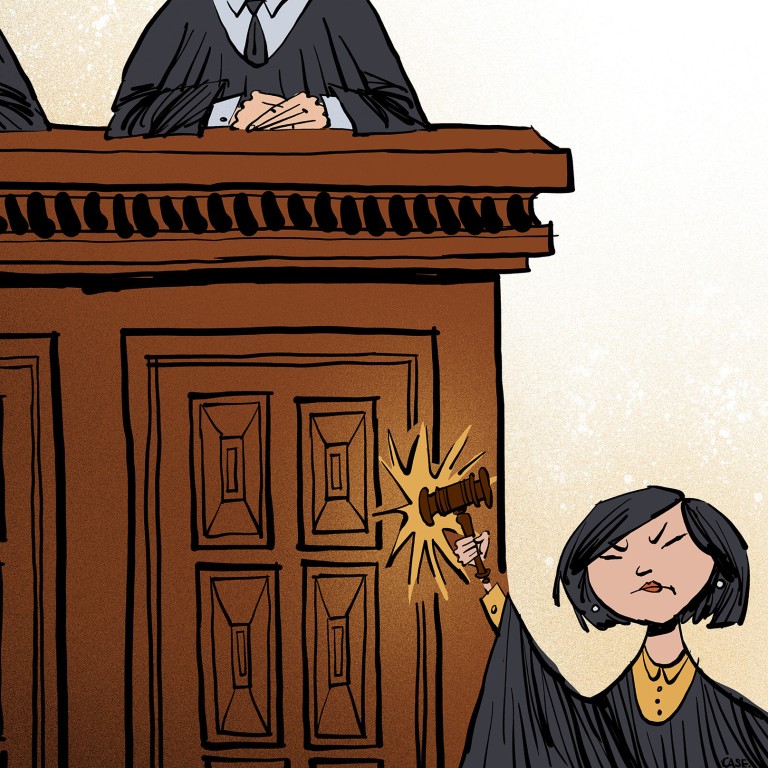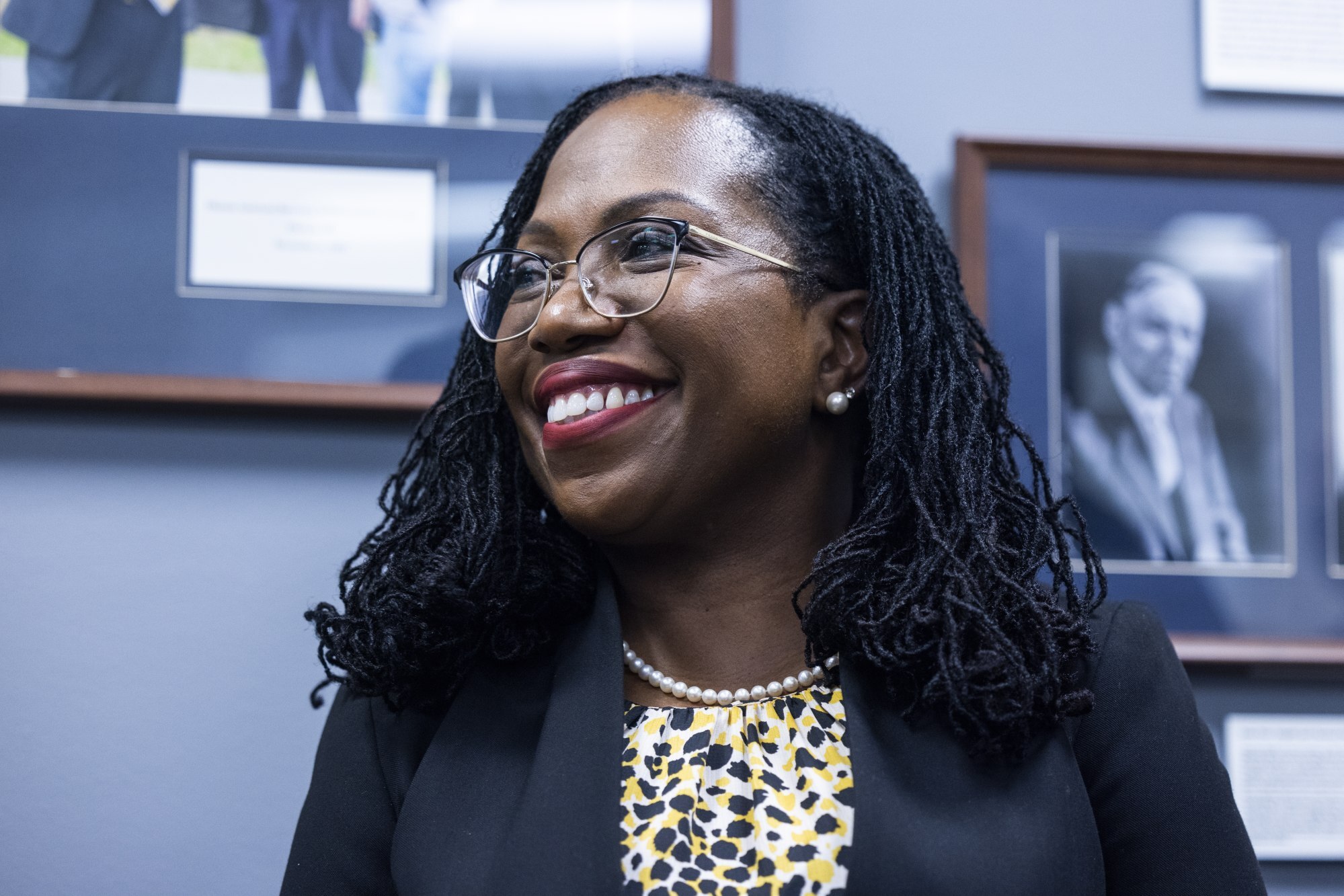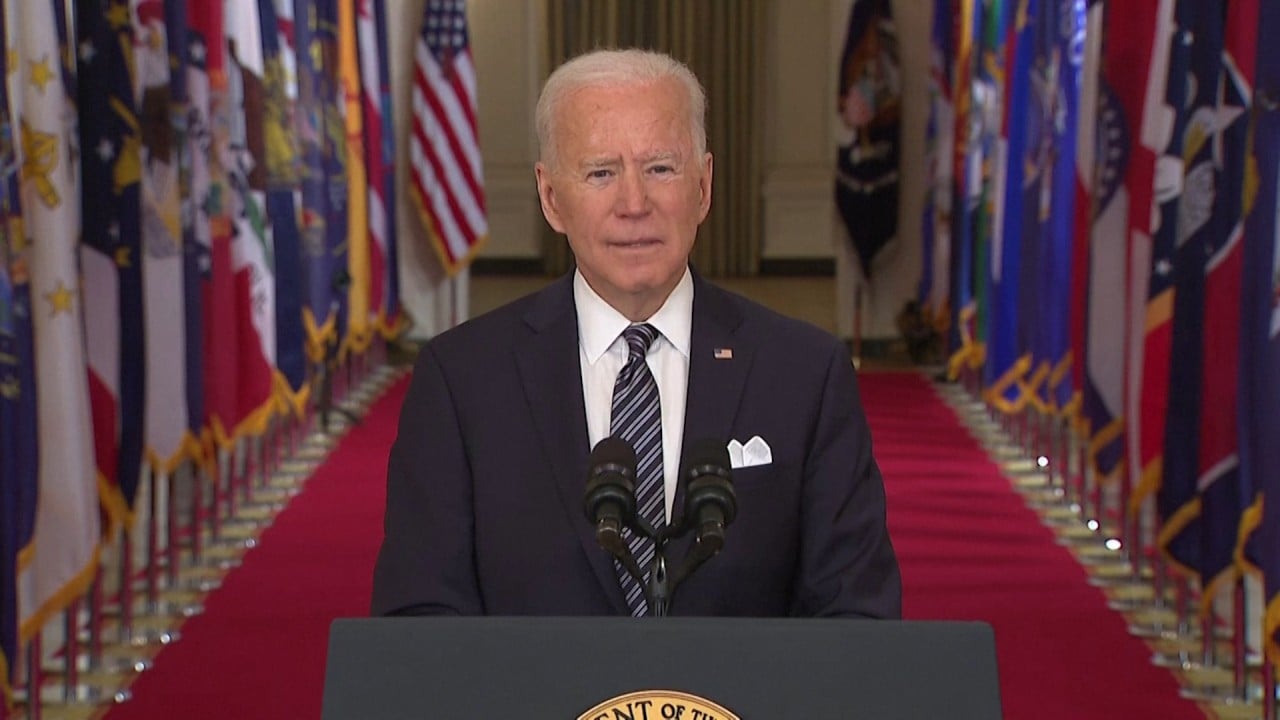
Asian-Americans still waiting for their US Supreme Court voice
- For all Biden’s talk of representing everyone, his pick of Ketanji Brown Jackson leaves Asian-Americans on the outside looking in again
- The bipartisan exclusion of Asian-Americans from high government offices suggests there are greater barriers limiting their opportunities
In the late 1950s, at the start of my career at the US Library of Congress, a man I did not know asked to join me one day as I ate lunch in the cafeteria. Such occurrences were not uncommon on Capitol Hill, where thousands of advisers, officials, staff, journalists and Congress members convened on any given day.
Yet the man I shared my table with that day held a far more important position than most of my usual lunchtime companions: he was Supreme Court Justice William Douglas.
While there are 100 Senators and 435 members of the House of Representatives, the Supreme Court – the highest court in the United States – has consisted of just nine justices since 1869. The US Constitution created the judicial branch, which includes the Supreme Court, as an equal of the legislative and executive branches.
Each justice is one of the most important figures in the US government with massive responsibilities, and each serves for life or until they choose to retire.

All told, 115 justices have served in the Supreme Court’s 232-year history, including 108 white men, four white women, two black men and one Hispanic woman. When I first sat down for lunch with Douglas, I never had any dreams of Asian representation on the court; most Asian-Americans had only just gained citizenship rights in 1952.
Judge Ketanji Brown Jackson set to make US supreme court history
Dalip Saund of California had only just become the first Asian elected to Congress in 1957, so I was hardly holding my breath to see an Asian-American join the Supreme Court. But in the decades since, as presidents have promoted more diverse candidates to fill Supreme Court vacancies, I began to wonder when it would be our turn.
In announcing his intention to nominate a black woman to the Supreme Court, Biden said such a move would “make sure we in fact get everyone represented”. But Asian candidates never had a chance for consideration to fill the vacancy.
Republicans – who try to portray themselves as champions of Asian-Americans by criticising affirmative action, including in a case the Supreme Court will hear later this year – have likewise ignored Asians when it comes to choosing Supreme Court nominees.
Trump’s Yale University attack: a Faustian bargain for Asian-Americans
The Supreme Court should better reflect the demographics of the nation, but there are limitations to this approach’s potential, especially as the Biden administration seems to have backed away from progressives’ suggestion to “pack the court” by adding more justices and enlarging it beyond its traditional roster of nine.
It is virtually impossible to encompass all of the US and its diversity through the individual backgrounds of nine people who serve for life.
Yet the exclusion of Asian-Americans from other high government offices leads me to believe there are greater barriers limiting their opportunities. With the average tenure of Supreme Court justices expected to increase to 35 years this century, Asian-Americans hoping to see their community represented on the court might have a long time to wait.
Chi Wang, a former head of the Chinese section of the US Library of Congress, is president of the US-China Policy Foundation


